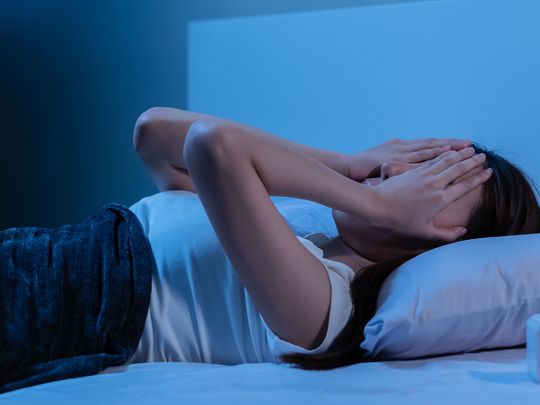New York: Although waking up all night can leave you mentally and physically exhausted, an interesting study claims that it can improve your mood for days.
In a new study, neurobiologists at Northwestern University in the United States induced mild and acute sleep deprivation in mice, then examined their behaviors and brain activity.
Not only was dopamine release increased during the period of acute sleep loss, but synaptic plasticity was also enhanced, literally rewiring the brain to maintain a bubbly mood for the following days.
The new findings, published online in the journal Neuron, could help researchers better understand how mood states evolve naturally.
It could also lead to a more complete understanding of how fast-acting antidepressants (like ketamine) work and help researchers identify previously unknown targets for new antidepressant drugs.
“Chronic sleep loss is well studied and its detrimental effects are widely documented,” said Professor Yevgenia Kozorovitskiy from the university.
“But brief loss of sleep – like the equivalent of a student pulling a sleepless night before an exam – is less understood.
“We found that sleep loss induces a powerful antidepressant effect and rewires the brain. It’s an important reminder of how our occasional activities, like an all-nighter, can fundamentally change the brain in just a few hours.” added Kozorovitskiy.
As part of this research, the team developed a new experiment aimed at inducing acute sleep loss in mice that do not have genetic predispositions linked to mood disorders in humans.
The experimental device had to be gentle enough to avoid causing significant stress to the animals, but just uncomfortable enough to prevent the animals from falling asleep.
After a sleepless night, the animals’ behavior changed to become more aggressive, hyperactive and hypersexual, compared to controls who experienced a typical night’s sleep.
Using optical and genetically encoded tools, the researchers measured the activity of dopamine neurons, responsible for the brain’s reward response. And they found that activity was higher in the animals during the brief period of sleep loss.
Although researchers don’t really understand why sleep loss causes this effect on the brain, Kozorovitskiy suspects evolution is at play.
Kozorovitskiy also warns people not to start having sleepless nights in order to brighten up a blue mood.
“The antidepressant effect is transient and we know the importance of a good night’s sleep,” she said.
“I would say it’s better to go to the gym or take a nice walk. This new knowledge is more important when it comes to matching someone with the right antidepressant.”
#sleepless #night #reverse #depression #days #study
Image Source : gulfnews.com

